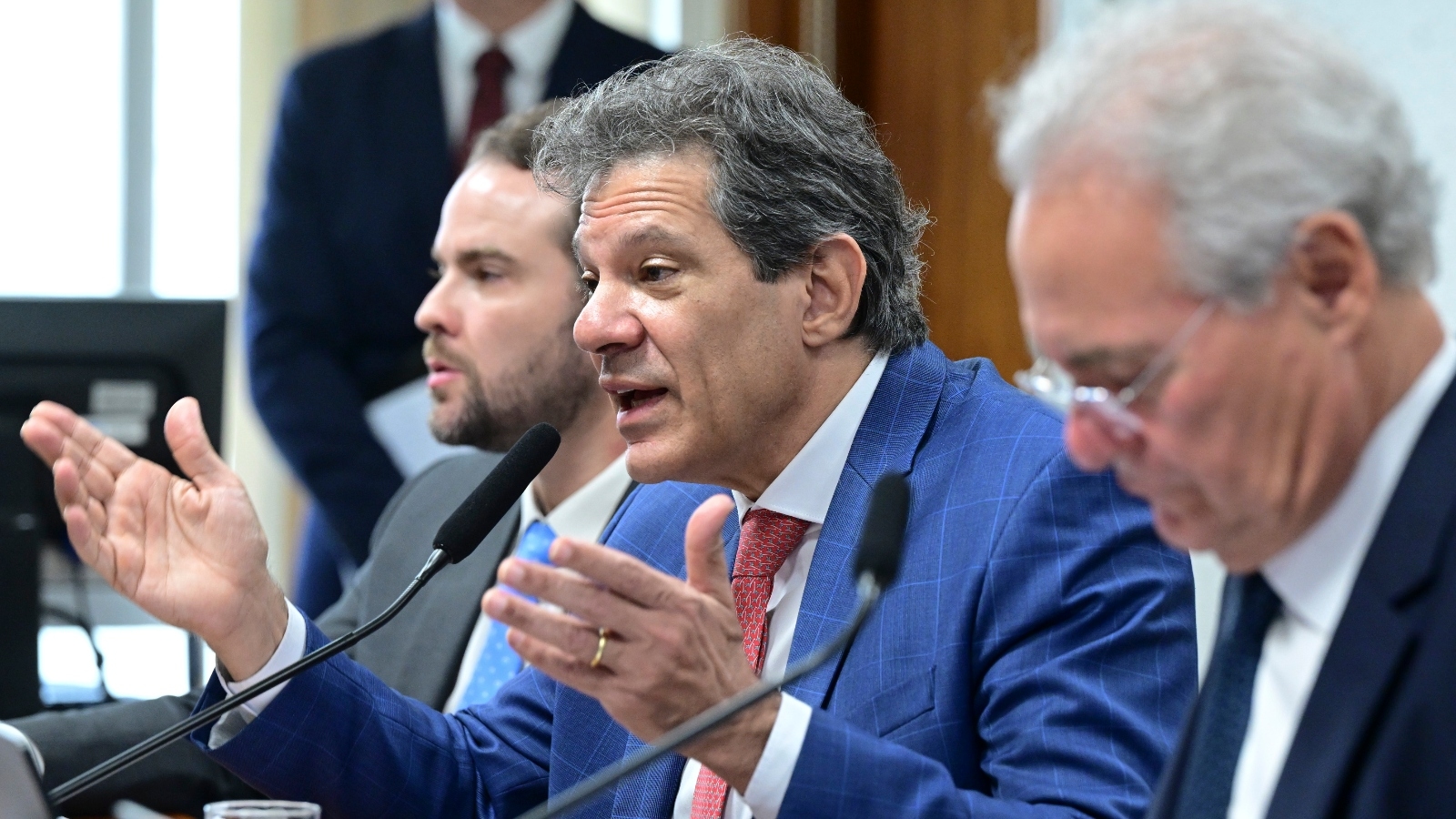Haddad says the country has an “inversion of values” in the debate on policies for the poor and the rich

Finance Minister Fernando Haddad said that Brazil has a "reversal of values" in the debate on economic policies. According to him, initiatives that help the poorest population are treated as populism, while those that benefit the richest are seen as progressive.
"Everything you do for the most vulnerable groups is populism, in Brazil, it has become populism, everything you do for the benefit of the rich is modern, it is advanced. It is an inversion of values," said Haddad this Tuesday (14), at the Economic Affairs Committee (CAE) of the Federal Senate.
The hearing's topic is a proposal to expand income tax exemptions and taxes on the wealthy. The bill was unanimously approved by the Chamber of Deputies and is now being processed in the Senate.
Haddad defended the government's proposal, arguing that it will bring more "social justice" and help reduce existing inequalities in the country. According to the minister, the measure benefits 25 million Brazilians, with exemptions and discounts, while simultaneously increasing taxes on 200,000 taxpayers at the "upper income."
Minister cites alternatives to MP 1,303, which taxed applicationsWhen asked about the government's options following the expiration of Provisional Measure 1,303 — which increased taxation on investments, sports betting, and fintechs —, the minister stated that the economic team will meet with President Lula to discuss alternatives.
Still using the "tax justice" rhetoric, Haddad once again defended the taxation the government has dubbed "BBB": billionaires, banks, and betting. Regarding online gambling—which would rise from 12% to 18% if Provisional Measure 1.303 were approved—the minister compared the Brazilian tax burden to that of other countries and stated that the taxation on this type of activity abroad is much higher.
Haddad also noted that "no one questions" the need to overtax activities and products that can cause addiction, such as cigarettes and alcohol, when justifying the increase in the betting tax rate.
The government was counting on Provisional Measure 1,303 to balance its books in 2026.As Gazeta do Povo showed , the Lula government is considering different alternatives to replenish the revenue that would be obtained with MP 1,303, considered essential to make the 2026 budget viable.
Among the possibilities are an increase in tax rates on betting companies and fintechs, a limitation on the granting of tax credits, cuts in parliamentary amendments — which Haddad said could exceed R$7 billion — and new adjustments to the IOF (Tax on Financial Transactions), among other measures.
Regarding the tax rate charged on fintechs, Haddad said he doesn't understand how a company of this nature, which can be up to five times larger than a traditional bank, has a lower tax rate.
gazetadopovo





